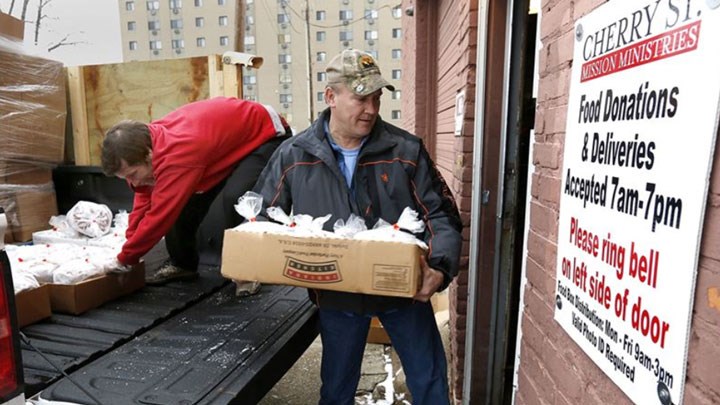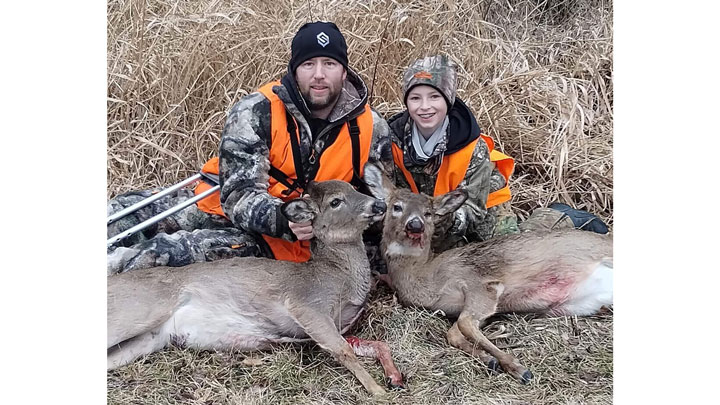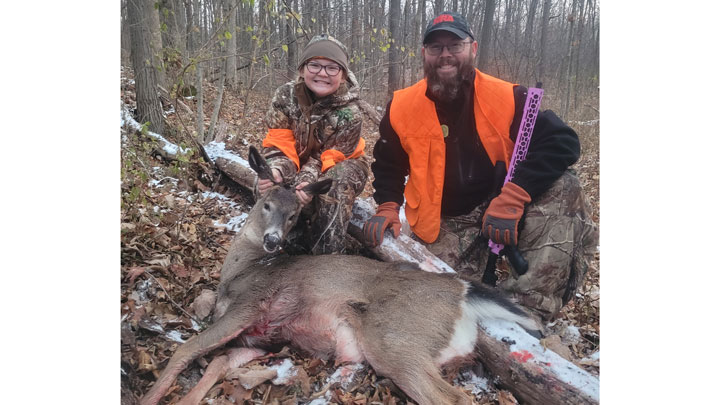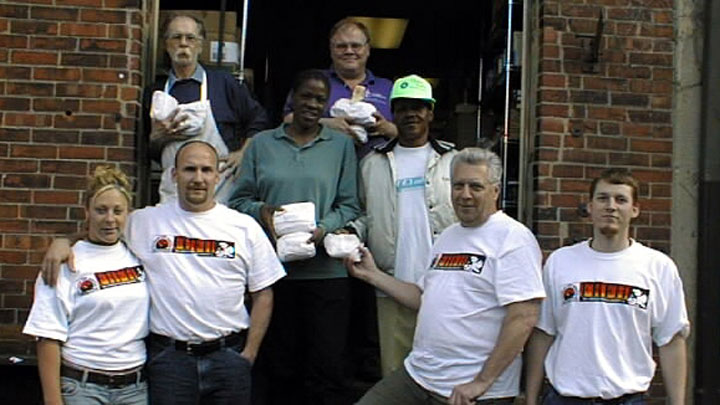
by Brian McCombie - Friday, March 10, 2023

America’s hunters can and do help the less fortunate. Just ask Marc Peugeot, the NRA’s senior field representative for Ohio, who was instrumental in restarting a program in his area of the Buckeye State to provide the less fortunate with a great source of organic protein: hunter-harvested venison.
During the summer of 2022, Peugeot attended a gathering of NRA field reps and heard a presentation given by Peter Churchbourne, Director of the NRA Hunters’ Leadership Forum (HLF). Churchbourne talked about the NRA and the NRA HLF’s commitment to the national Hunters for the Hungry (HFH) movement and programs such as Farmers and Hunters Feeding the Hungry (FHFH), which works to provide meat to those in need through hunter-donated game and farmer-donated livestock.
In fact, the NRA and its HLF have promoted FHFH since the group launched 25 years ago. To date, FHFH alone has provided more than 20 million servings of meat to food banks across the nation, much of that in the form of hunter-harvested venison.
The NRA runs the Hunters for the Hungry Information Clearinghouse to help put hunters in touch with programs near them where they can donate their wild game. Additionally, the NRA and NRA HLF donate $50,000 annually to HFH groups to help defray meat-processing costs. There are 38 viable HFH groups nationally, including chapters of the FHFH, which receive up to $1,500 each in NRA HLF funding to support their efforts.
Churchbourne’s presentation got Peugeot thinking. And thinking. A lifelong hunter, he lives in the far northwestern corner of Ohio, an area with an abundance of whitetail deer and deer hunters, as well as many charitable organizations working hard to provide food to locals in need of help. So how do I connect the hunters and their excess venison with the local food banks? he wondered.
Peugeot contacted NRA headquarters and was directed to the national FHFH program, which put him in touch with the Ohio branch of FHFH. After consulting with the state’s FHFH facilitator, Peugeot sent out feelers to gauge local interest. The level of interest, he soon discovered, was very high. What he had trouble finding, however, were meat processors who would use their facilities to take and butcher game animals.
As the NRA HLF website reported, Peugeot said, “When the COVID-19 pandemic hit, a lot of people in our area experienced supply chain issues at the grocery stores, which included a lack of meat or really high prices. Many people started going to custom butchers for meat and these butchers were so overwhelmed with orders and work, a good number of them stopped taking game animals for processing.”
Peugeot’s position as an NRA field rep has him working with Ohio Friends of NRA groups as well as with The NRA Foundation. Using his many NRA and hunting contacts in the state, Peugeot was able to find three local processors who agreed to take deer for processing in support of the FHFH program. He also applied for and received a $1,500 grant from the NRA HLF to help support meat processing costs.
Peugeot was not able to get things up and running until well into Ohio’s 2022 deer hunting seasons. But he was able to put together a “donation” hunt during the Ohio muzzleloader deer season. That hunt brought together a dozen hunters, some of whom stayed at Peugeot’s home, and resulted in 11 harvested deer going to a meat processor and then a local food bank. Peugeot himself harvested and donated a doe.

Peugeot studied wildlife management at Ohio State University and was sure that an active local FHFH also would benefit wildlife conservation and hunting in his area.
“In my part of Ohio, a person can take three deer maximum, only one of which can be a buck,” Peugeot explained. “There are many hunters and landowners who would like to do more to trim our high deer populations, but these are ethical hunters and often they can only use one deer themselves over the course of a year. So, they aren’t about to kill a deer just to kill a deer.”

Now, these hunters can take a deer for meat, and then harvest another doe or two for the FHFH program.
Peugeot expects big things for the 2023 deer hunting season and the FHFH program. He noted that after he and his friends donated those deer from the muzzleloader hunt, the word got out and he began receiving calls from food banks and individuals who could use the meat.
“We have three food banks now that will take pretty much all the venison we can get them,” he added. “And we just connected with a fourth food bank. Plus, we had a $5,000 grant for meat processing initially approved by the Friends of the NRA Ohio branch.”
Meat processing is about the only cost the FHFH program has, Peugeot noted. And the processors themselves have really stepped up to help. Generally, local butchers would charge between $125 and $150 to process a deer, but the three butcher operations Peugeot works with are only asking $60 to $70 to cover their basic costs.

“I wouldn’t say we started a new FHFH Chapter,” Peugeot explained. “FHFH had been active here, yet over time resources got pulled to other parts of the state. But I would say that we re-energized local FHFH efforts and have helped put it on a good course for years to come.”
About the Author
NRAHLF.org contributor Brian McCombie is a field editor for the NRA’s American Hunter and writes about firearms and gear for the NRA’s Shooting Illustrated. He is a member of the National Rifle Association and the National Shooting Sports Foundation. Brian likes hunting hogs, shooting 1911s chambered in 10mm and .45 ACP, watching the Chicago Bears and relaxing with his two cats, Peanut Morgan and MikaBear.
E-mail your comments/questions about this site to:
[email protected]
